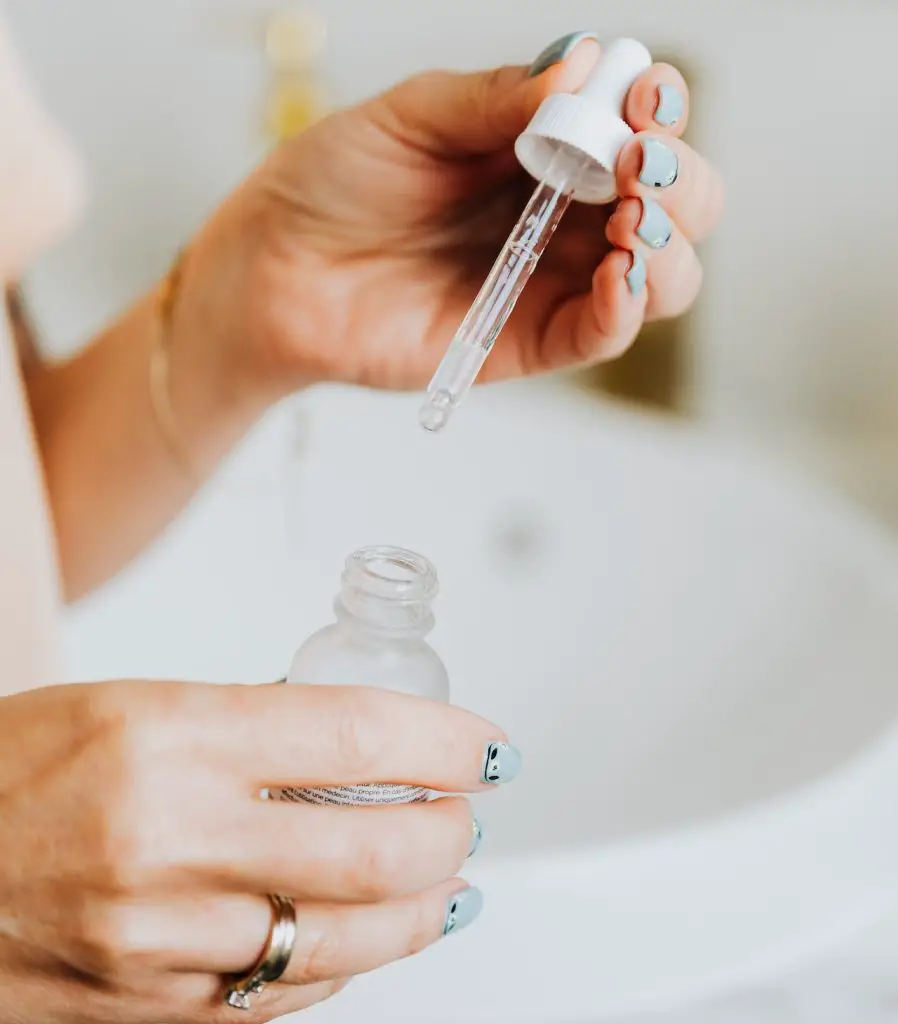As the years pass, our bodies undergo a natural and inevitable process of aging, which affects numerous aspects of our health and physiology. One significant change that occurs as we age is the gradual decrease in hyaluronic acid levels within our bodies. Hyaluronic acid, a vital substance found abundantly in various tissues and fluids, plays a crucial role in maintaining hydration, lubrication, and elasticity in our skin, joints, and other connective tissues. As this essential compound declines, it can lead to various age-related issues, such as wrinkles, joint stiffness, and decreased skin suppleness.
This is where hyaluronic serums swoop in to save the day and give us a helping hand. These little wonders are packed with hyaluronic acid goodness, and they work wonders for our skin and joints. When you apply a hyaluronic serum to your skin, it helps to lock in moisture, keeping your skin plump and hydrated, which can really make those pesky wrinkles less noticeable.
What is Hyaluronic Acid?
Let’s discuss the wonders of hyaluronic acid in simpler terms. Hyaluronic acid is a natural substance that our bodies produce. It’s like a long chain made up of sugar molecules and is found in the connective tissues. One of its primary roles is to keep our tissues well-lubricated and moist.
You can find hyaluronic acid in high concentrations in the fluid that lubricates our joints, in the vitreous humor of our eyes, and in our skin. It gives the skin a plump and hydrated look, contributing to a more youthful appearance.
People have also found ways to use hyaluronic acid to their advantage. It can be extracted from plants and used as a topical treatment for dry skin. Additionally, it’s used in dermal fillers like Juvederm and Restylane to treat wrinkles and fine lines.
When applied on the skin, hyaluronic acid helps to lock in moisture, making the skin look fresher and younger. And when it’s injected, it adds volume to the skin and helps to smooth out wrinkles.
How Does Hyaluronic Acid Work?
Operating as a potent moisturizer, hyaluronic acid binds with water molecules. It then forms a gel-like substance that keeps the skin hydrated. Its remarkable ability to retain water allows it to hold up to 1000 times its weight, making it highly effective in maintaining skin hydration. When applied topically, it locks in moisture, resulting in a youthful and supple appearance. Furthermore, when used in dermal fillers through injections, it adds volume to the skin, diminishing wrinkles and fine lines. Hyaluronic acid’s impressive capacity to retain moisture and support tissues makes it a potent asset in enhancing skin health and overall appearance.
Benefits of Hyaluronic Acid Serum
Hyaluronic acid serum has gained popularity in skincare routines due to its exceptional benefits for skin health and appearance. Here are six amazing benefits of using a hyaluronic acid serum:
Intense Hydration: Hyaluronic acid is a moisture magnet, attracting and retaining water within the skin. Using a hyaluronic acid serum ensures deep hydration, plumping up the skin and reducing the appearance of fine lines and wrinkles caused by dehydration.
Enhanced Skin Elasticity: By maintaining optimal moisture levels, hyaluronic acid promotes skin elasticity. This helps the skin maintain its natural bounce and firmness, giving it a more youthful and supple appearance.
Improved Skin Texture: Regular use of hyaluronic acid serum can lead to smoother skin texture. As the skin becomes well-hydrated, it appears smoother and softer, with reduced roughness and unevenness.
Minimized Fine Lines and Wrinkles: Hyaluronic acid’s ability to plump and hydrate the skin can diminish the appearance of fine lines and wrinkles, making them look less pronounced. It creates a smoother canvas for makeup application as well.
Soothing and Calming: Hyaluronic acid has soothing properties that benefit sensitive or irritated skin. It helps reduce redness and inflammation, making it an excellent choice for those with skin conditions like eczema or rosacea.
Enhanced Absorption of Other Products: When applied before other skincare products, hyaluronic acid serum acts as a humectant, drawing moisture from the environment and allowing subsequent products to penetrate deeper into the skin. This can improve the overall efficacy of your skincare routine.
Remember that the effectiveness of a hyaluronic acid serum may vary based on the concentration of hyaluronic acid, the formulation of the serum, and your individual skin type and concerns. It’s advisable to incorporate the serum into a comprehensive skincare regimen that includes cleansing, moisturizing, sun protection, and other products targeted to your specific needs. If you’re introducing a new product into your routine, consider performing a patch test to ensure your skin tolerates it well.
How to Increase Hyaluronic Acid in your Body Naturally?
the body produces hyaluronic acid naturally, but these foods can help provide the necessary building blocks for its production. Here are some foods that may help:
Foods Rich in Antioxidants
Antioxidant-rich foods help protect cells from damage and support collagen production, which is closely linked to hyaluronic acid. Examples include berries (blueberries, strawberries, raspberries), dark leafy greens, and colorful vegetables.
Omega-3 Fatty Acid Sources
Omega-3 fatty acids are beneficial for skin health and hydration. Incorporate sources like fatty fish (salmon, mackerel, sardines), chia seeds, flaxseeds, and walnuts into your diet.
Vitamin C-Rich Foods
Vitamin C is crucial for collagen synthesis, and collagen is a key component in the production of hyaluronic acid. Consume foods high in vitamin C, such as citrus fruits (oranges, grapefruits), strawberries, bell peppers, and broccoli.
Collagen-Rich Foods
While not directly related to hyaluronic acid, collagen-rich foods support skin health. These foods include bone broth, chicken skin, fish with skin, and collagen peptides.
Soy-Based Foods:
Some research suggests that soy-based foods, like tofu and tempeh, may help promote hyaluronic acid production.
Silicon-Rich Foods
Silicon is a trace mineral that supports collagen formation. Foods like bananas, whole grains, and leafy greens contain silicon.
Water-Rich Fruits and Vegetables
Hydrated skin is healthier, and consuming water-rich foods like cucumbers, watermelon, and celery can contribute to overall skin hydration.
Bone Broth
Bone broth contains various nutrients that support skin health, including collagen. Consuming homemade bone broth may provide some benefits.
Healthy Fats
Incorporate healthy fats from sources like avocados, nuts, and olive oil. Healthy fats contribute to skin health and overall hydration.
Green Tea
Green tea contains antioxidants that can benefit skin health and potentially support collagen synthesis.
Conclusion
So, to sum it all up, hyaluronic acid is like a superhero for your skin and body. Whether you’re sipping on vitamin-packed smoothies or dabbing on that hydrating serum, it’s doing some pretty cool things. Picture this: it’s like a mega dose of hydration for your skin, making it plump and smooth. Those fine lines and wrinkles? Yep, it’s helping to make them less noticeable. And it’s not just a skin thing – it’s also hanging out in your joints, keeping them happy and moving smoothly.


